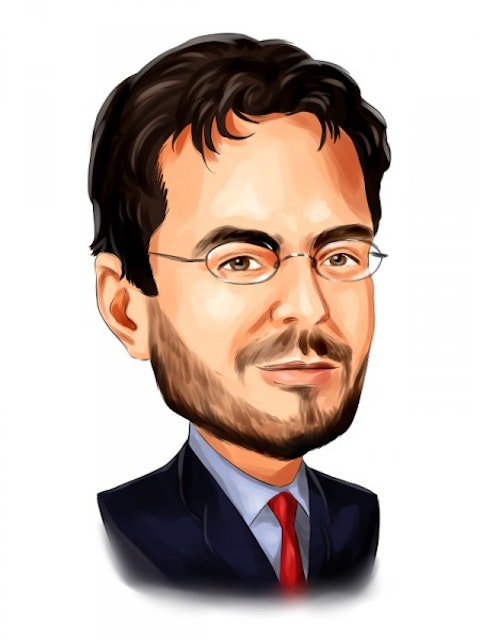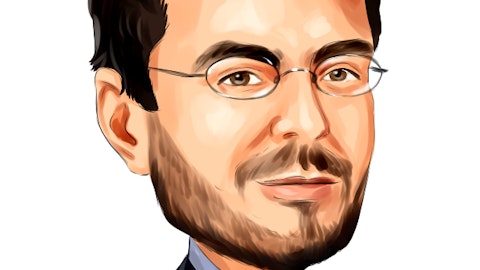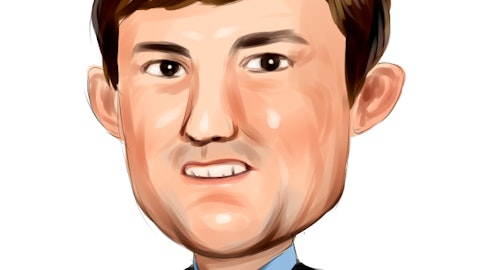The biotechnology industry is up by more than 50% over the last year, but these towering returns don’t come without great risk and volatility. However, an investor can improve his chances of picking up a high return biotech stock if he were to follow hedge funds, taking advantage of their rigorous fundamental research. With that in mind, we recently discovered that Peter Kolchinsky‘s RA Capital acquired some 5.68 million shares of Arca Biopharma Inc (NASDAQ:ABIO), according to a recent filing with the Securities and Exchange Commission. The stake represents about 9.0% of the company’s outstanding stock.

Kolchinsky’s astute understanding of the biotechnology industry can be attributed to his educational background, as he holds a Ph.D in virology from Harvard. In addition, he now has investment experience spanning about 14 years, since he established his fund in 2001. The market value of the healthcare-based fund’s public equity portfolio stood at $988.38 million as of March31. Aside from Arca Biopharma Inc (NASDAQ:ABIO), some other top micro-cap picks heading the fund’s portfolio included Regulus Therapeutics Inc (NASDAQ:RGLS), Dicerna Pharmaceuticals Inc (NASDAQ:DRNA), and Dynavax Technologies Corporation (NASDAQ:DVAX), which we’ll also look at in this piece.
Follow Peter Kolchinsky's RA Capital Management
First, a quick word on why we track hedge fund activity. In 2014, equity hedge funds returned just 1.4%. In 2013, that figure was 11.3%, and in 2012, they returned just 4.8%. These are embarrassingly low figures compared to the S&P 500 ETF (SPY)’s 13.5% gain in 2014, 32.3% gain in 2013, and 16% gain in 2012. Does this mean that hedge fund managers are dumber than a bucket of rocks when it comes to picking stocks? The answer is definitely no. Our small-cap hedge fund strategy, which identifies the best small-cap stock picks of the best hedge fund managers returned 28.2% in 2014, 53.2% in 2013, and 33.3% in 2012, outperforming the market each year (it’s outperforming it so far in 2015 too). What’s the reason for this discrepancy you may ask? The reason is simple: size. Hedge funds have gotten so large, they have to allocate the majority of their money into large-cap liquid stocks that are more efficiently priced. They are like mutual funds now. Consider Ray Dalio’s Bridgewater Associates, the largest in the industry with about $165 billion in AUM. It can’t allocate too much money into a small-cap stock as merely obtaining 2% exposure would really move the price. In fact, Dalio can’t even obtain 2% exposure to many small-cap stocks, even if he essentially owned the entire company, as they’re simply too small (or rather, his fund is too big). This is where we come in. Our research has shown that it is actually hedge funds’ small-cap picks that are their best performing ones and we have consistently identified the best picks of the best managers, returning 144% since the launch of our small-cap strategy compared to less than 60% for the S&P 500 (see the details).
The $20.19 million biopharmaceutical company, Arca Biopharma Inc (NASDAQ:ABIO), is engaged in the development of genetically-targeted therapies for patients with cardiovascular diseases. Three of the company’s drugs are currently in the Phase 3 stage of testing, and patients are currently being enrolled for the trial. Although down by more than 26% over the last year, Arca Biopharma Inc (NASDAQ:ABIO)’s stock is up by more than 10% so far in 2015. Hal Mintz‘s Sabby Capital is the largest stockholder of the company within our database, owning some 140,300 shares valued at $112,000.


